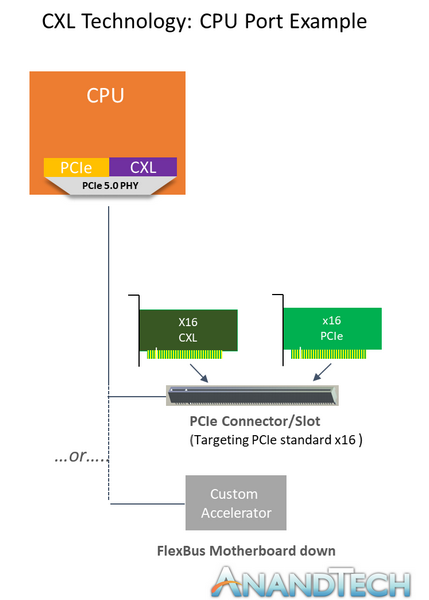Compute Express Link - Interconnect for Big Data

With the modernization of the architecture of computing into multi-core and multi-node in full growth, the question arose about how to move data between computing resources, especially heterogeneous. Every now and then bottlenecks arose that slowed down the entire system as a whole, and new technologies were invented that to some extent solved the problem, but, on the other hand, complicated it by its variety. The industry needed an interconnect standard designed based on experience gained and supported by a consortium of leading players. Now, with Intel, there is one.
March 11 published the first version of the specification standard Compute Express Link or, in abbreviated form, CXL. It took Intel developers 4 years to finish work on it and enlist the support of leading companies in the industry. Now the CXL consortium includes companies such as Alibaba, Cisco, Dell EMC, Facebook, Google, HPE, Huawei, Intel and Microsoft - it’s hard to imagine a more representative meeting in the field of interconnect. The standard is open in all respects, any third parties can use it or work on its improvements together with the founding fathers of the consortium.

Compute Express Link was originally created as a cache-coherent host-device interconnect with an eye on GPUs and FPGAs. It uses the PCIe 5.0 standard in the physical and electrical parts, providing protocols for data exchange, as well as ensuring memory coherency between the processor and the attached device. The goal of CXL is to accelerate applications like AI, machine learning, media, LDCs, and the cloud. As for Intel, it is possible that its accelerators, FPGAs and GPUs will continue to operate as PCIe devices in the “CXL mode”.
So, the CXL 1.0 specification is ready. Work began on the second version; At this stage, the consortium expects to expand its composition and, therefore, the number of supported solutions. Another urgent task for the very near future is to build relationships with similar existing solutions, such as CCIX, GenZ or NVLink. Whether it will be synergy, cooperation or competition - time will tell.
